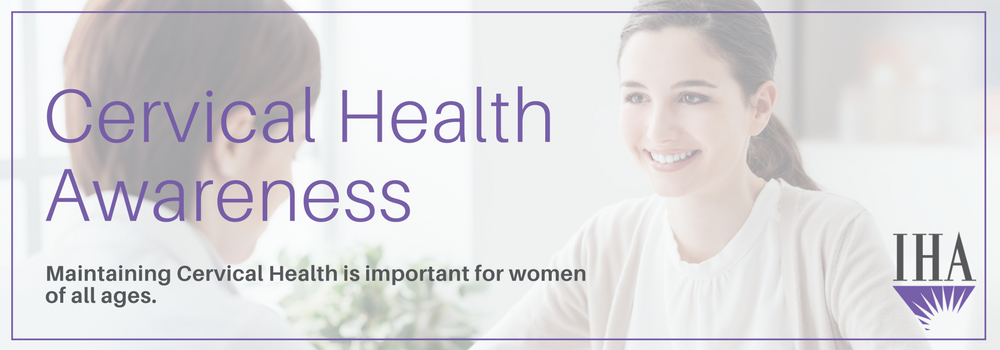
MAINTAINING YOUR CERVICAL HEALTH IS IMPORTANT FOR WOMEN OF ALL AGES
Did you know that nearly 13,000 women are diagnosed with Cervical Cancer each year in the United States alone? January is Cervical Health Awareness Month, a time to take the opportunity to learn how to monitor your own cervical health for early detection of cervical cancer and human papillomavirus (HPV) related issues. It is important to stay up-to-date with cervical cancer screening recommended by your OB-GYN provider based on your age. Stay in touch with your body – here are common recommendations for women of all ages:
AGES 9-26
It’s time to get your Gardasil Immunization to prevent infection and transmission of the most common strains of HPV (Human Papilloma Virus, the most common cause of cervical dysplasias and cervical cancers). No cervical screening is recommended for young women before age 21.
AGES 21-29
When you turn 21, it’s time to start with regular cervical cytology – commonly known as the Pap test or Pap smear – every three years. If your results are ASCUS (borderline between normal and abnormal), your doctor may recommend HPV triage, which is done using the same cells taken at your screening and will look for any high-risk HPV infections. This approach may be taken between ages 21 and 24 and it is preferable between ages 25 and 29.
AGES 30-65
At age 30 it is recommended to maintain cervical cytology alone every three years, or to get co-testing, cytology and viral culture, every five years.
AGES 65 AND BEYOND
Once you reach age 65, no cervical screening is needed if prior testing has been normal.
Of course, your gynecologist will chart your plan of care based on your personal screening history – it can vary, but annual care is most important!
Learn more about cervical health and cancer warning signs from the CDC.
